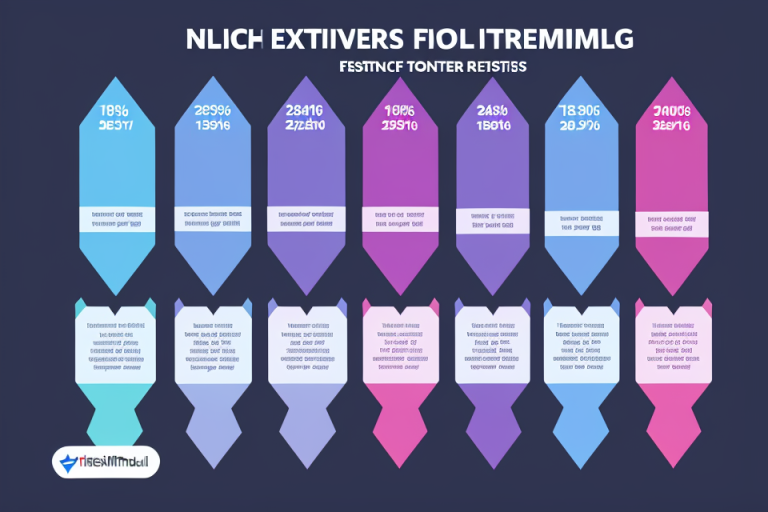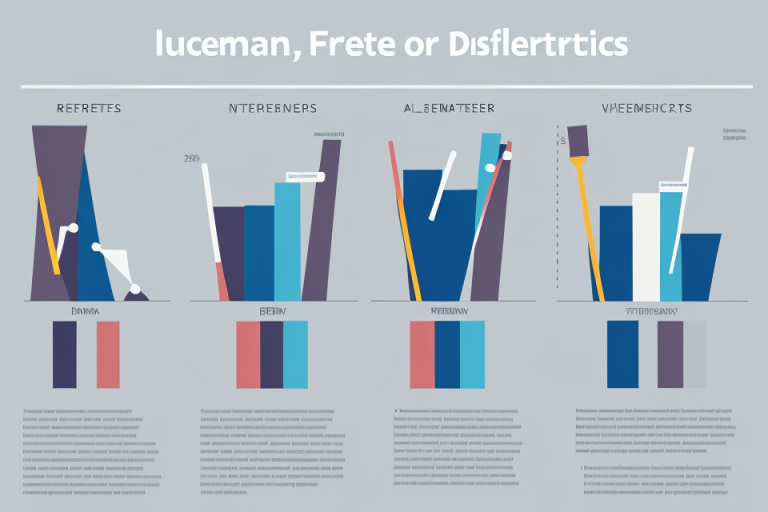The Effects of 16-Hour Fasting on Metabolism: A Comprehensive Guide
Metabolism is the process by which our body converts food into energy. Many people believe that fasting for 16 hours can slow down metabolism, but is this really true? In this comprehensive guide, we will explore the effects of 16-hour fasting on metabolism and separate fact from fiction. We will examine the science behind fasting and metabolism, and look at the latest research to determine whether fasting for 16 hours can actually slow down your metabolism. Whether you’re a seasoned faster or just starting out, this guide will provide you with the information you need to make informed decisions about your health and wellbeing. So, let’s dive in and explore the fascinating world of fasting and metabolism.
What is 16-Hour Fasting?
Understanding the concept of time-restricted feeding
- A method of fasting that involves limiting food intake to a specific 8-hour window each day and abstaining from food for the remaining 16 hours.
- Also known as “16:8” or “intermittent fasting.”
- This type of fasting has gained popularity in recent years as a potential weight loss and health improvement strategy.
- It is important to note that while time-restricted feeding has been shown to have potential health benefits, it may not be suitable for everyone and should be approached with caution.
- Consult a healthcare professional before starting any new fasting regimen.
Differences between 16:8 and other fasting methods
16:8 fasting is a popular form of time-restricted feeding that involves restricting daily food intake to an 8-hour window and fasting for the remaining 16 hours. This method of fasting is different from other fasting methods such as the 5:2 method, which involves eating normally for five days a week and drastically reducing calorie intake for the other two days.
Another popular fasting method is the 18:6 method, which involves fasting for 18 hours and eating for 6 hours each day. The 16:8 method is unique in that it only requires a short period of fasting each day, making it a more manageable and flexible fasting method for many people.
In addition to being more flexible, the 16:8 method has also been shown to have potential health benefits, including improved insulin sensitivity, weight loss, and increased autophagy, which is the process by which the body cleans out damaged cells and replaces them with new ones.
Overall, the 16:8 method is a popular and effective fasting method that offers many potential health benefits.
How Does Fasting Affect Metabolism?
Insulin sensitivity and glucose metabolism
Fasting has been shown to have a positive impact on insulin sensitivity and glucose metabolism. When we eat, our body releases insulin to regulate blood sugar levels. However, frequent meals and snacking can cause our body to become less sensitive to insulin, which can lead to various health issues.
Studies have shown that intermittent fasting, including the 16-hour fasting protocol, can improve insulin sensitivity by increasing the body’s ability to respond to insulin. This is particularly important for individuals who are at risk of developing type 2 diabetes or other metabolic disorders.
Fasting can also help improve glucose metabolism by increasing the body’s ability to utilize glucose for energy. When we fast, our body switches from using glucose as its primary source of energy to using stored fat as fuel. This metabolic switch can help improve glucose metabolism and reduce the risk of developing insulin resistance.
Additionally, fasting has been shown to improve the body’s ability to clear glucose from the bloodstream, which can help regulate blood sugar levels and improve overall glucose metabolism.
Overall, the effects of 16-hour fasting on insulin sensitivity and glucose metabolism are positive, and this protocol can be a useful tool for individuals looking to improve their metabolic health.
Impact on hunger and appetite
When one embarks on a fasting regimen, particularly the 16-hour fast, it can significantly impact hunger and appetite. The human body is designed to respond to fluctuations in energy intake, and fasting can cause hormonal changes that affect one’s perception of hunger and satiety.
Alterations in ghrelin and leptin levels
Ghrelin, often referred to as the “hunger hormone,” is produced by the stomach and stimulates appetite. Leptin, on the other hand, is a satiety hormone that helps suppress appetite and increase energy expenditure. During fasting, ghrelin levels rise, and leptin levels fall, leading to increased hunger sensations.
Adjustments in insulin and glucagon
Insulin and glucagon are two hormones that work together to regulate blood sugar levels. Insulin is responsible for storing energy as glycogen, while glucagon signals the liver to release stored glycogen for energy when glucose levels are low. Fasting can cause insulin levels to decrease, and glucagon levels to increase, leading to the breakdown of stored glycogen and fat for energy, which can result in reduced hunger sensations.
Influence on ketone production
When the body is in a fasted state, it relies on stored fat for energy. As the liver breaks down fatty acids, it produces ketones, which can serve as an alternative energy source for the brain. Ketone production can lead to a feeling of fullness and reduced hunger.
In summary, fasting can significantly impact hunger and appetite by altering hormone levels, regulating energy stores, and influencing the body’s energy metabolism. However, it is important to note that individual experiences may vary, and fasting may not necessarily reduce appetite for everyone. It is always advisable to consult with a healthcare professional before embarking on any fasting regimen.
Effects on energy expenditure and thermogenesis
When one fasts for 16 hours, the body’s energy expenditure and thermogenesis are affected. These changes in energy expenditure and thermogenesis are due to the hormonal changes that occur during fasting.
- Decreased Energy Expenditure: During a 16-hour fast, the body’s energy expenditure decreases, as there is less energy available for physical activity. This decrease in energy expenditure is due to the decrease in the oxidation of glucose and fatty acids.
- Decreased Thermogenesis: Thermogenesis is the process by which the body generates heat. During a 16-hour fast, thermogenesis decreases, as there is less energy available for heat production. This decrease in thermogenesis is due to the decrease in the oxidation of glucose and fatty acids.
- Increased Ketone Production: Fasting increases the production of ketone bodies, which are molecules produced by the liver when it breaks down fat for energy. When the body is in a state of ketosis, it can use ketone bodies as an alternative source of energy. This increase in ketone production is due to the decrease in the oxidation of glucose and fatty acids.
- Increased Fat Breakdown: Fasting also increases the breakdown of fat for energy. This increase in fat breakdown is due to the decrease in the oxidation of glucose and fatty acids.
- Increased Glucose Preservation: Fasting preserves glucose by decreasing the rate at which glucose is used by the body. This preservation of glucose is due to the decrease in the oxidation of glucose and fatty acids.
In summary, fasting for 16 hours can have a significant impact on the body’s energy expenditure and thermogenesis. These changes are due to the hormonal changes that occur during fasting, including the increase in ketone production and fat breakdown, and the decrease in glucose oxidation.
Can Fasting Slow Down Metabolism?
Myths and misconceptions about fasting and metabolism
While fasting has been shown to have numerous health benefits, there are several myths and misconceptions surrounding its effects on metabolism. One common myth is that fasting slows down metabolism, causing the body to burn fewer calories. However, research has shown that this is not necessarily the case.
The truth about fasting and metabolism
Studies have shown that fasting can actually increase metabolism by boosting the body’s ability to burn fat. When we eat, our bodies use energy to digest food, which can temporarily slow down metabolism. By fasting, we give our bodies a break from this process, allowing metabolism to return to its normal, higher state.
Furthermore, fasting has been shown to increase the production of human growth hormone (HGH), which is a key hormone involved in metabolism. HGH helps to regulate energy metabolism, protein synthesis, and fat breakdown, among other functions. By increasing HGH levels through fasting, we can boost our metabolism and potentially promote weight loss.
However, it’s important to note that the effects of fasting on metabolism can vary depending on individual factors such as age, gender, and overall health. While fasting may be beneficial for some people, it may not be suitable for others, particularly those with certain medical conditions or a history of eating disorders.
In summary, fasting does not necessarily slow down metabolism, and in fact, it may have the opposite effect by boosting fat burning and increasing HGH production. However, it’s important to approach fasting with caution and consult with a healthcare professional before starting any new diet or fasting regimen.
Factors that can influence basal metabolic rate
There are several factors that can influence an individual’s basal metabolic rate (BMR), which is the amount of energy required to maintain basic bodily functions at rest. Understanding these factors can help us better understand how fasting may affect metabolism.
- Age: BMR tends to decrease as we age due to a decline in muscle mass and hormone levels. This means that older individuals may be more susceptible to a slowdown in metabolism during fasting.
- Gender: Men typically have a higher BMR than women due to their higher muscle mass. As a result, men may be less likely to experience a slowdown in metabolism during fasting.
- Body composition: Individuals with a higher percentage of body fat may experience a slower metabolism during fasting compared to those with more muscle mass. This is because muscle tissue requires more energy to maintain than fat tissue.
- Genetics: Our genetics can play a role in our BMR and how our bodies respond to fasting. For example, some individuals may have genetic variations that affect their ability to burn fat or their insulin sensitivity.
- Diet and nutrition: A diet that is high in processed foods and low in nutrients can contribute to a slower metabolism. On the other hand, a diet that is rich in whole foods and nutrients can support a healthy metabolism. Fasting may affect the body’s ability to process and utilize nutrients, which could impact metabolism.
- Exercise and physical activity: Regular exercise and physical activity can help maintain a healthy BMR and metabolism. However, fasting may affect the body’s ability to perform physical activity and recover from exercise.
By understanding these factors, we can better assess how fasting may impact an individual’s metabolism and whether it is appropriate for their specific circumstances.
The role of hormones and neurotransmitters
When it comes to the effects of fasting on metabolism, hormones and neurotransmitters play a crucial role. Here’s how:
Insulin
Insulin is a hormone that regulates blood sugar levels. During fasting, insulin levels decrease, allowing the body to break down stored fat for energy. This process, known as ketosis, can help the body burn fat more efficiently and potentially lead to weight loss.
Ghrelin
Ghrelin is a hormone that stimulates appetite. During fasting, ghrelin levels increase, leading to feelings of hunger. This increase in ghrelin can also slow down metabolism, making it more difficult to lose weight.
Leptin
Leptin is a hormone that regulates energy balance and helps to suppress appetite. During fasting, leptin levels decrease, which can lead to increased hunger and potentially weight gain.
Norepinephrine
Norepinephrine is a neurotransmitter that helps to regulate metabolism and energy expenditure. During fasting, norepinephrine levels increase, which can help to boost metabolism and burn fat.
Epinephrine
Epinephrine is another neurotransmitter that regulates metabolism and energy expenditure. During fasting, epinephrine levels increase, which can help to boost metabolism and burn fat.
In summary, the hormones and neurotransmitters involved in fasting can have both positive and negative effects on metabolism. While some can help to boost metabolism and burn fat, others can slow it down and make it more difficult to lose weight. Understanding these hormones and neurotransmitters can help individuals make informed decisions about their fasting routines and overall health goals.
Benefits of 16-Hour Fasting for Metabolic Health
Weight loss and body composition
One of the most significant benefits of 16-hour fasting is its impact on weight loss and body composition. This section will explore the ways in which this fasting regimen can promote fat loss and improve overall health.
- Fat loss and weight management
- The science behind 16-hour fasting and weight loss
- Explanation of how fasting can induce ketosis and enhance fat oxidation
- The role of insulin sensitivity and glucose metabolism in weight management
- How 16-hour fasting differs from other fasting regimens
- Comparison with intermittent fasting (e.g., 16:8) and time-restricted feeding
- Factors to consider when choosing a fasting regimen for weight loss
- Practical tips for incorporating 16-hour fasting into your lifestyle
- Suggestions for adjusting meal times and maintaining caloric intake
- Strategies for staying motivated and overcoming obstacles
- The science behind 16-hour fasting and weight loss
- Body composition improvements
- The impact of 16-hour fasting on lean body mass and muscle growth
- The role of protein synthesis and breakdown in muscle development
- The effects of fasting on anabolic and catabolic hormones
- How 16-hour fasting can benefit overall health and fitness
- The connection between metabolic health and body composition
- Examples of real-life experiences and success stories
- The impact of 16-hour fasting on lean body mass and muscle growth
In summary, 16-hour fasting has been shown to promote weight loss and improve body composition by inducing ketosis, enhancing fat oxidation, and increasing insulin sensitivity. By choosing the right fasting regimen and incorporating it into your lifestyle, you can achieve significant health benefits and improve your overall well-being.
Improved insulin sensitivity and glucose control
- Introduction to Insulin Sensitivity
Insulin sensitivity refers to the body’s ability to respond to insulin, a hormone that regulates blood sugar levels. High insulin sensitivity means the body can efficiently utilize insulin, leading to better glucose control. Low insulin sensitivity, on the other hand, can result in various metabolic disorders. - How 16-Hour Fasting Affects Insulin Sensitivity
Studies have shown that 16-hour fasting can lead to improved insulin sensitivity by promoting the release of adiponectin, a hormone produced by fat cells that helps regulate glucose levels. - Glucose Control and 16-Hour Fasting
16-hour fasting can also lead to better glucose control by increasing the body’s ability to utilize glucose effectively. This can be attributed to the increased release of adiponectin, which enhances the body’s insulin sensitivity and helps maintain stable glucose levels. - Potential Mechanisms of Improved Glucose Control
One potential mechanism by which 16-hour fasting improves glucose control is through the activation of AMPK (adenosine monophosphate-activated protein kinase), an enzyme that plays a crucial role in regulating glucose metabolism. - Implications for Metabolic Health
Improved insulin sensitivity and glucose control resulting from 16-hour fasting can have significant implications for metabolic health. This could potentially reduce the risk of developing type 2 diabetes, obesity, and other metabolic disorders. - Additional Benefits of Improved Insulin Sensitivity
Improved insulin sensitivity resulting from 16-hour fasting can also have additional benefits, such as enhanced fat loss, improved muscle growth, and better overall health.
Enhanced autophagy and cellular health
Autophagy is a natural process in which the body cleans out damaged cells and replaces them with new, healthy ones. It is a critical mechanism for maintaining cellular health and function. When we fast for 16 hours, our bodies are induced into a state of autophagy, where damaged cells are broken down and recycled for use as energy or to create new cells.
This process is essential for maintaining healthy metabolic function and preventing the development of chronic diseases such as diabetes, heart disease, and cancer. Studies have shown that regular fasting can increase the levels of autophagy-related proteins in the body, which suggests that fasting may enhance the body’s ability to clean out damaged cells and promote cellular health.
Furthermore, autophagy has been linked to increased lifespan and improved metabolic health in animal models. In mice, for example, regular fasting has been shown to increase the levels of autophagy-related proteins and reduce the risk of age-related diseases such as diabetes and heart disease.
In addition to its benefits for cellular health, autophagy may also play a role in weight loss. When we fast, our bodies break down stored fat for energy, which can lead to weight loss. However, it is important to note that fasting is not a magic bullet for weight loss and should be combined with a healthy diet and exercise regimen for optimal results.
Overall, the benefits of enhanced autophagy and cellular health through 16-hour fasting are significant and may help to improve metabolic health and reduce the risk of chronic diseases.
Safety and Precautions for Fasting
Who should avoid fasting
Fasting may not be suitable for everyone, and certain individuals should avoid fasting without consulting a healthcare professional. The following are groups of people who should exercise caution before engaging in fasting:
- Children: Fasting is not recommended for children as their bodies are still developing, and fasting can negatively impact their growth and development.
- Pregnant or breastfeeding women: Fasting can lead to nutrient deficiencies, which can harm the developing fetus or infant. Additionally, pregnant women may experience dehydration and fatigue from fasting, which can be harmful to their health.
- Individuals with a history of eating disorders: Fasting can trigger eating disorders such as anorexia nervosa or bulimia nervosa, and individuals with a history of these conditions should avoid fasting.
- Individuals with diabetes: Fasting can cause fluctuations in blood sugar levels, and individuals with diabetes may experience hypoglycemia or hyperglycemia during fasting. It is essential to consult a healthcare professional before engaging in fasting if you have diabetes.
- Individuals with a history of low blood pressure: Fasting can cause a further drop in blood pressure, which can lead to dizziness, fainting, or other symptoms. Individuals with a history of low blood pressure should exercise caution before fasting.
- Individuals taking medications: Some medications may need to be adjusted or stopped during fasting, and individuals taking medications should consult a healthcare professional before engaging in fasting.
It is important to note that fasting is not recommended for everyone, and individuals should consult a healthcare professional before engaging in fasting to ensure it is safe for them.
Tips for safe and healthy fasting
- Consult a healthcare professional before starting any fasting regimen, especially if you have a pre-existing medical condition or are taking medication.
- Gradually progress towards longer fasting periods to allow your body to adjust.
- Stay hydrated by drinking plenty of water, herbal tea, or other non-caloric beverages during your fasting periods.
- Avoid excessive physical activity during your fasting periods as it can put unnecessary strain on your body.
- Listen to your body and break your fast if you experience any discomfort or adverse effects.
- Ensure you are consuming a nutritious diet with a balanced mix of macronutrients outside of your fasting periods to support your overall health and wellbeing.
Medical supervision for individuals with health conditions
While fasting can be a beneficial practice for many individuals, it is important to note that it may not be suitable for everyone. Certain health conditions or medications may require medical supervision before embarking on a fasting regimen.
It is essential to consult with a healthcare professional before starting any fasting routine, especially if you have a history of eating disorders, diabetes, low blood pressure, or other health conditions. Your healthcare provider can help determine if fasting is safe for you and provide guidance on how to proceed.
Additionally, individuals taking certain medications may need to be cautious when fasting, as some medications may need to be adjusted or avoided during fasting periods. For example, individuals taking insulin for diabetes may need to adjust their dosages when fasting, as skipping meals can cause blood sugar levels to drop too low.
In some cases, medical supervision may be necessary to ensure that fasting does not negatively impact your health. A healthcare professional can monitor your vital signs, nutrient intake, and overall health status to ensure that you are not experiencing any adverse effects from fasting.
It is also important to note that fasting should not be used as a weight loss strategy for individuals with certain health conditions, such as anorexia nervosa or bulimia nervosa. These individuals may require specialized treatment and support from a healthcare professional.
Overall, it is crucial to prioritize your health and safety when considering fasting. By seeking medical supervision and guidance, you can ensure that you are practicing fasting in a safe and healthy manner.
The verdict on whether fasting for 16 hours slows metabolism
- Fasting for 16 hours has been found to have minimal effects on metabolism. While some studies have shown a decrease in metabolic rate during the fasting period, these effects are generally transient and do not lead to long-term changes in metabolism.
- Fasting for 16 hours does not necessarily lead to weight loss. While calorie restriction is a key component of many weight loss programs, the effectiveness of fasting for weight loss is still being studied. Some studies have shown that intermittent fasting can lead to weight loss, while others have found no significant effects.
- The impact of fasting on metabolism may depend on individual factors. Factors such as age, gender, and overall health may influence how the body responds to fasting. Additionally, the type of fasting (e.g. time-restricted feeding vs. complete calorie restriction) may also play a role in the impact on metabolism.
- Fasting for 16 hours may have other health benefits. While the impact on metabolism is still being studied, there is evidence to suggest that fasting may have other health benefits, such as improving insulin sensitivity and reducing inflammation.
Overall, while the effects of fasting for 16 hours on metabolism are still being studied, it is generally considered safe and may have other health benefits.
Future research and considerations
Although the benefits of 16-hour fasting on metabolism have been widely studied, there are still several areas that require further investigation. The following are some potential avenues for future research:
Personalized nutrition and fasting regimens
As people’s genetic makeup, lifestyle, and dietary preferences vary greatly, it is important to explore how individual factors may influence the effects of 16-hour fasting on metabolism. By developing personalized nutrition and fasting regimens based on an individual’s unique characteristics, healthcare professionals can tailor recommendations to optimize weight loss and overall health.
The impact of 16-hour fasting on long-term health
While short-term studies have shown promising results for 16-hour fasting, there is limited research on its long-term effects on overall health. Investigating the long-term impact of 16-hour fasting on metabolic health, cardiovascular disease risk factors, and overall mortality will provide a more comprehensive understanding of its potential benefits and risks.
The effects of 16-hour fasting on different populations
Most studies on 16-hour fasting have been conducted in Caucasian populations, and there is a need to investigate its effects on diverse populations. Research should be conducted to determine if the benefits of 16-hour fasting observed in Caucasian populations are also applicable to other ethnic groups, and if there are any potential risks or cultural considerations that need to be taken into account.
The role of exercise during fasting
While some studies have investigated the effects of exercise during fasting, there is still much to be learned about the optimal exercise intensity, duration, and type during a fasting state. Further research is needed to determine the most effective exercise strategies for maximizing the benefits of 16-hour fasting on metabolism and overall health.
The impact of 16-hour fasting on metabolic health markers
While studies have shown that 16-hour fasting can improve metabolic health markers such as insulin sensitivity and glucose tolerance, there is a need for further research to investigate the long-term effects of 16-hour fasting on these markers. Additionally, it is important to determine if the benefits of 16-hour fasting are comparable to those of other dietary interventions, such as time-restricted eating or caloric restriction.
The mechanisms underlying the effects of 16-hour fasting on metabolism
While there is growing evidence supporting the benefits of 16-hour fasting on metabolism, the underlying mechanisms responsible for these effects are not yet fully understood. Further research is needed to elucidate the cellular and molecular processes that drive the improvements in metabolic health observed during 16-hour fasting.
The potential impact of 16-hour fasting on gut microbiota
Recent studies have suggested that gut microbiota may play a role in the effects of fasting on metabolism. Future research should investigate the impact of 16-hour fasting on gut microbiota composition and function, and determine if changes in gut microbiota contribute to the observed improvements in metabolic health.
By addressing these future research considerations, we can gain a deeper understanding of the effects of 16-hour fasting on metabolism and develop evidence-based recommendations for its safe and effective use in various populations.
Tailoring fasting to individual needs and goals
When it comes to fasting, one size does not fit all. Individual needs and goals play a crucial role in determining the best fasting regimen for each person. Here are some factors to consider when tailoring fasting to your specific needs and goals:
Health conditions and medications
Before starting any fasting regimen, it is essential to consult with a healthcare professional, especially if you have pre-existing health conditions or are taking medications. Certain health conditions, such as diabetes or low blood pressure, may require adjustments to your fasting routine. Similarly, certain medications may need to be adjusted or avoided during fasting periods.
Age and gender
Age and gender can also play a role in determining the best fasting regimen for an individual. For example, older adults may need to modify their fasting routine to avoid potential health risks associated with fasting, such as dehydration or malnutrition. Women may also need to take additional precautions when fasting, especially during menstruation or pregnancy.
Lifestyle and goals
Finally, individual lifestyle and goals can also influence the best fasting regimen for a person. For example, someone who is highly active and needs to maintain a high-energy level may benefit from a different fasting schedule than someone who is more sedentary. Similarly, someone who is looking to lose weight may benefit from a different fasting regimen than someone who is looking to improve their overall health.
In conclusion, it is essential to tailor fasting to individual needs and goals to maximize its potential benefits. By considering factors such as health conditions, age, gender, and lifestyle, individuals can find the best fasting regimen for their unique needs and goals.
FAQs
1. What is 16-hour fasting?
16-hour fasting is a form of time-restricted eating where individuals fast for 16 hours a day and have an 8-hour eating window. This means that you would skip breakfast and only eat between noon and 8 PM.
2. Does fasting for 16 hours slow down your metabolism?
There is no conclusive evidence that 16-hour fasting will slow down your metabolism. In fact, some studies suggest that intermittent fasting, including 16-hour fasting, can increase metabolism by increasing the breakdown of fat and the use of stored energy.
3. Will I lose weight by fasting for 16 hours?
It is possible to lose weight by fasting for 16 hours, as it can help you create a calorie deficit. However, weight loss is not solely dependent on fasting, and a balanced diet and regular exercise are also important factors.
4. What are the potential risks of fasting for 16 hours?
As with any form of fasting, there are potential risks involved with fasting for 16 hours. These can include feeling hungry, weak, or fatigued, as well as headaches, dizziness, and irritability. If you have a medical condition, it is important to speak with your doctor before starting any fasting regimen.
5. Can I drink water while fasting for 16 hours?
Yes, you can drink water while fasting for 16 hours. It is important to stay hydrated, especially if you are exercising during your eating window. However, it is recommended to avoid drinks with added sugars or calories.
6. How do I start fasting for 16 hours?
Starting a 16-hour fasting regimen can be done gradually. You can start by skipping breakfast and see how your body feels. It is important to listen to your body and make adjustments as needed. It is also recommended to speak with your doctor before starting any fasting regimen.







